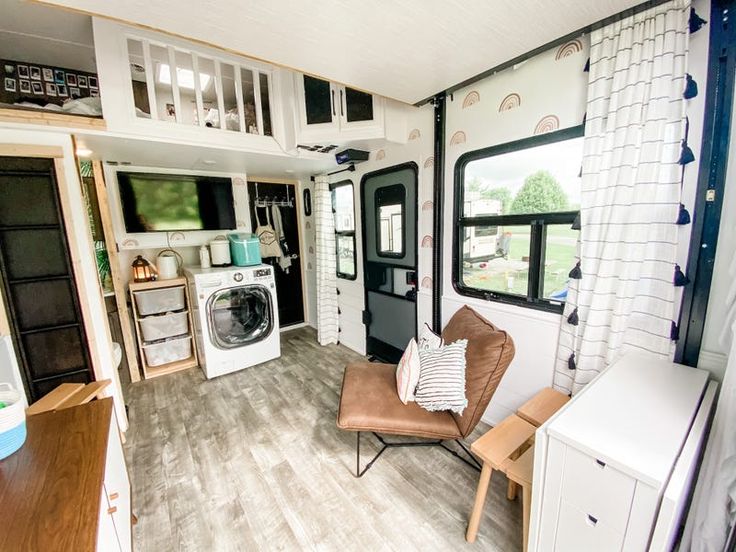
In this article, we will explore the top 7 crucial aspects to consider when planning for a well-organized RV retirement.
From budgeting effectively to ensuring proper healthcare on the road, we will provide practical insights and valuable advice for those seeking a life of freedom on the open road.
Discover how to socialize, stay active, and create lasting memories with grandchildren, all while navigating the process of downsizing and choosing a home base.
Prepare for a fulfilling and rewarding RV retirement journey ahead.
Budgeting for RV Retirement
Budgeting is a vital component when planning for a well-prepared RV retirement. As retirees embark on their adventure-filled journey, it is important to have a clear understanding of RV retirement expenses and the financial planning required to sustain this lifestyle.
One of the first steps in budgeting for an RV retirement is to create a comprehensive list of anticipated expenses. This includes not only the obvious costs such as fuel, campground fees, and maintenance, but also healthcare, insurance, and unexpected emergencies.
Additionally, retirees should consider their current financial situation and determine their monthly income streams to ensure these expenses can be covered.
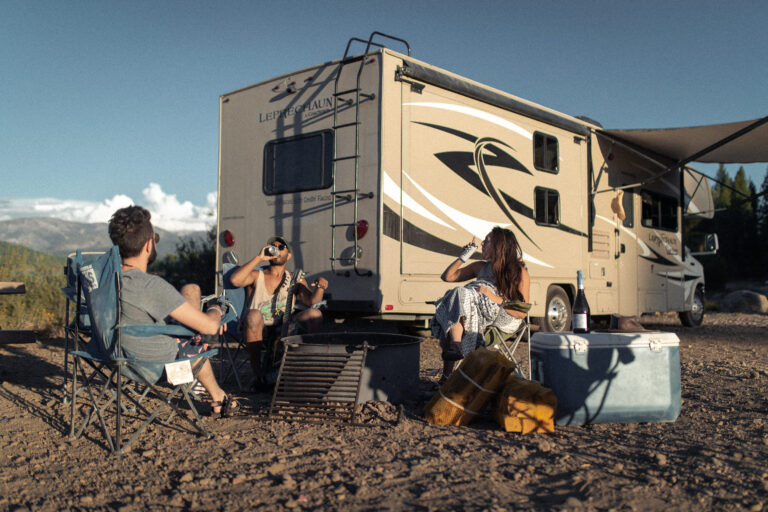
Health Care for RVers
When planning for retirement as an RVer, it's important to consider health care options that will provide coverage and fit within your budget.
Comparing different insurance plans and their costs will help you make an informed decision.
Additionally, exploring telemedicine options can be beneficial while traveling, as it allows you to consult with healthcare professionals remotely.
Coverage and Cost Comparisons
The article explores the important aspect of coverage and cost comparisons for health care options available to RVers. When planning for a well-prepared RV retirement, it is essential to consider the various health care options and their associated costs. Here are three key factors to consider:
RV Insurance: Look for insurance plans that provide coverage specifically tailored for RVers. These plans should cover both your vehicle and its contents, as well as provide liability protection in case of accidents or damages.
Travel Expenses: Consider your travel expenses when comparing health care options. Some plans may have limitations on coverage outside of specific regions or states, so it's important to choose a plan that offers nationwide coverage or has a network of healthcare providers in the areas you plan to travel.
Cost Comparisons: Compare the costs of different health care plans, including premiums, deductibles, and out-of-pocket expenses. Consider your budget and the level of coverage you need to ensure you have adequate healthcare coverage while enjoying your freedom on the road.
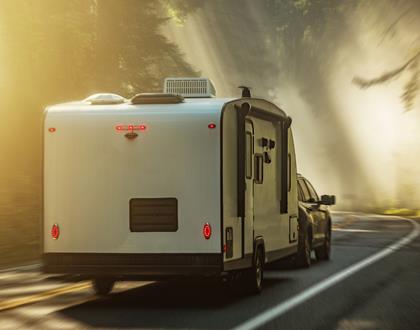
Telemedicine Options While Traveling
One important aspect to consider for health care options while traveling as an RVer is the availability of telemedicine services. Virtual consultations and remote healthcare have become increasingly popular, especially among those seeking freedom and flexibility in their retirement lifestyle. Telemedicine allows RVers to connect with healthcare professionals remotely, eliminating the need to visit a physical clinic or hospital.
This can be particularly beneficial when traveling to remote areas where access to medical facilities may be limited. With telemedicine, RVers can receive medical advice, prescriptions, and even certain treatments without having to leave the comfort of their own home on wheels. It provides a convenient and efficient way to address non-emergency health concerns while on the road.
Socializing on the Road
Socializing on the road is an important aspect of RV retirement that allows individuals to make new friends and create a sense of community. Attending community events and gatherings provides opportunities to interact with like-minded people and engage in shared interests.
Staying connected while traveling through technology and social media platforms can also help maintain relationships with family and friends back home.
Making New Friends
When traveling in an RV during retirement, it is important to prioritize making new friends and building a social network on the road. Meeting people and forming connections can enhance your RV experience and create lasting memories. Here are three practical ways to socialize while on the road:
Attend RV rallies and gatherings: RV rallies are a great way to meet fellow enthusiasts who share your passion for travel. These events often feature social activities, seminars, and group outings, providing ample opportunities to connect with like-minded individuals.
Join online RV communities: Utilize the power of the internet to connect with other RVers. Online forums, social media groups, and websites dedicated to RV travel are excellent platforms to meet new friends, exchange tips and advice, and even organize meetups.
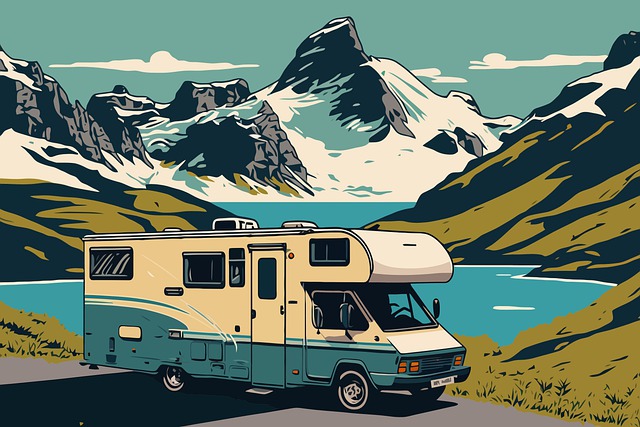
Engage in campground activities: Many RV parks and campgrounds organize social activities such as potlucks, game nights, and group hikes. Participating in these activities not only allows you to meet fellow campers but also creates a sense of community and camaraderie.
Community Events and Gatherings
Building a strong sense of community and fostering connections with fellow RVers is essential for a well-planned RV retirement. Community events and gatherings provide opportunities for socializing on the road and creating lifelong friendships.
Engaging in community involvement activities not only enriches your retirement experience but also allows you to give back to the places you visit. Many RV parks and campgrounds organize regular events such as potlucks, game nights, and group outings to local attractions. These events provide a chance to meet like-minded individuals, share stories and experiences, and exchange tips and recommendations.
Additionally, attending local events and festivals in the areas you visit can offer a unique cultural experience and a chance to connect with the local community. Embracing community events and gatherings is a wonderful way to make the most of your RV retirement and create lasting memories.
Staying Connected While Traveling
One crucial aspect to consider for a well-planned RV retirement is maintaining connections with others while traveling. Staying connected on the road is essential for socializing and keeping up with family and friends. Here are three practical ways to stay connected while traveling in your RV:
RV internet options: Investing in a reliable internet solution for your RV is crucial. Consider options like mobile hotspot devices, satellite internet, or campground wifi. Research different providers and choose the one that offers the best coverage and speed for your needs.
Finding wifi on the road: While campground wifi can be convenient, it's not always reliable or fast. To find wifi on the road, consider using apps like WiFi Map or RVillage, which provide information on nearby wifi hotspots. Additionally, many cafes, libraries, and even some rest areas offer free or low-cost wifi access.
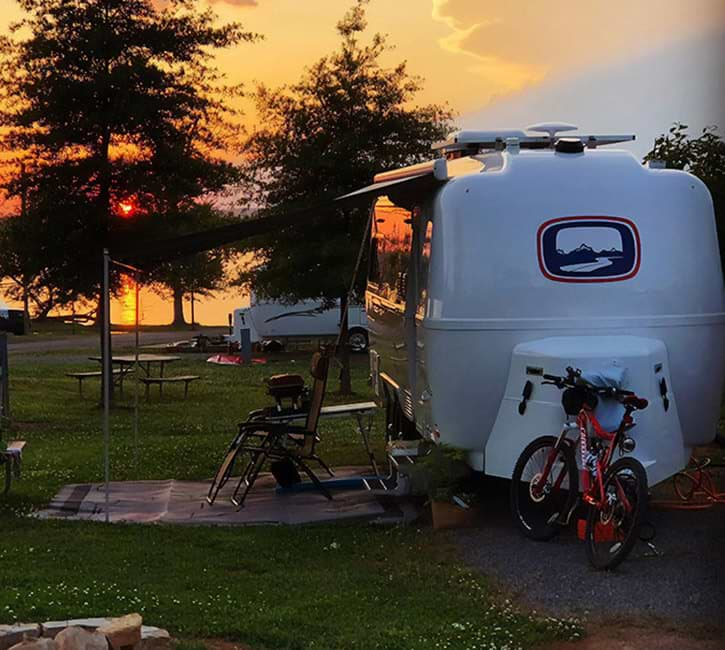
Socialize at RV parks and gatherings: RV parks and campgrounds often host social events and gatherings, providing opportunities to meet fellow travelers. Participate in activities like potlucks, game nights, or group hikes to connect with like-minded individuals and build new friendships.
Staying Active in Retirement
How can retirees maintain an active lifestyle during their RV retirement?
Staying active in retirement is essential for overall health and well-being. Luckily, RV living offers numerous opportunities for RV fitness and engaging in outdoor activities.
One of the advantages of RV retirement is the freedom to explore new places and engage in various physical activities. From hiking and biking to swimming and kayaking, there are endless outdoor activities that retirees can enjoy while living the RV lifestyle.
Additionally, many RV parks offer amenities such as fitness centers, walking trails, and group exercise classes, allowing retirees to stay fit and active even while on the road.
RVing With Grandchildren
RVing with grandchildren can be a fulfilling and memorable experience for retirees. It provides an opportunity to create lasting memories, strengthen family bonds, and impart valuable life lessons. However, when traveling with young ones, safety should always be a top priority.
Here are some important considerations for a safe and enjoyable RV adventure with grandchildren:
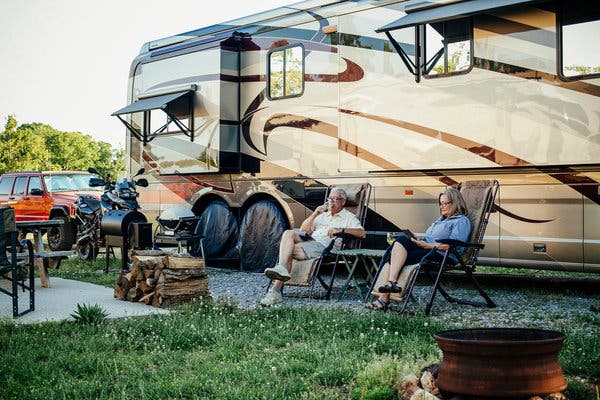
- Ensure that your RV is equipped with necessary safety features such as seat belts, child-proof locks, and smoke detectors.
- Teach your grandchildren about RVing safety rules, such as staying clear of the driver's area while the vehicle is in motion and using caution when entering and exiting the RV.
- Plan educational activities that are both fun and enriching, such as visiting national parks, historic landmarks, and museums, to foster a love for learning and exploration.
Downsizing for RV Life
To prepare for a well-planned RV retirement, retirees must carefully consider the process of downsizing for RV life. Embracing a minimalist lifestyle is essential for those who desire the freedom and flexibility that RV living offers. Downsizing can be a challenging task, but with some practical tips, it can become an enlightening and rewarding experience.
First and foremost, prioritize the items that truly matter to you. Consider what you need versus what you want, and be ruthless in your decision-making. Keep only the essentials and let go of unnecessary possessions. Remember, the goal is to simplify and declutter your life.
Maximize storage space by investing in organizational tools such as collapsible storage containers, hanging organizers, and vacuum-sealed bags. Utilize vertical and hidden storage spaces to make the most of your limited square footage.
Lastly, don't forget to digitize your documents and photos to save physical space and reduce clutter. Embrace a minimalist mindset and focus on experiences rather than material possessions. Downsizing for RV life is a liberating journey that ultimately leads to a more fulfilling and adventurous retirement.
Choosing a Home Base
When considering a well-planned RV retirement, one crucial aspect to carefully contemplate is selecting a suitable home base. Your home base will serve as your anchor and provide a sense of stability amidst the freedom of the open road.
Here are three key factors to consider when choosing your home base:
Location: Look for a location that offers a variety of amenities and attractions, such as proximity to healthcare facilities, grocery stores, and recreational activities. Consider the climate and natural beauty of the area, as well as the availability of RV parks and campgrounds.
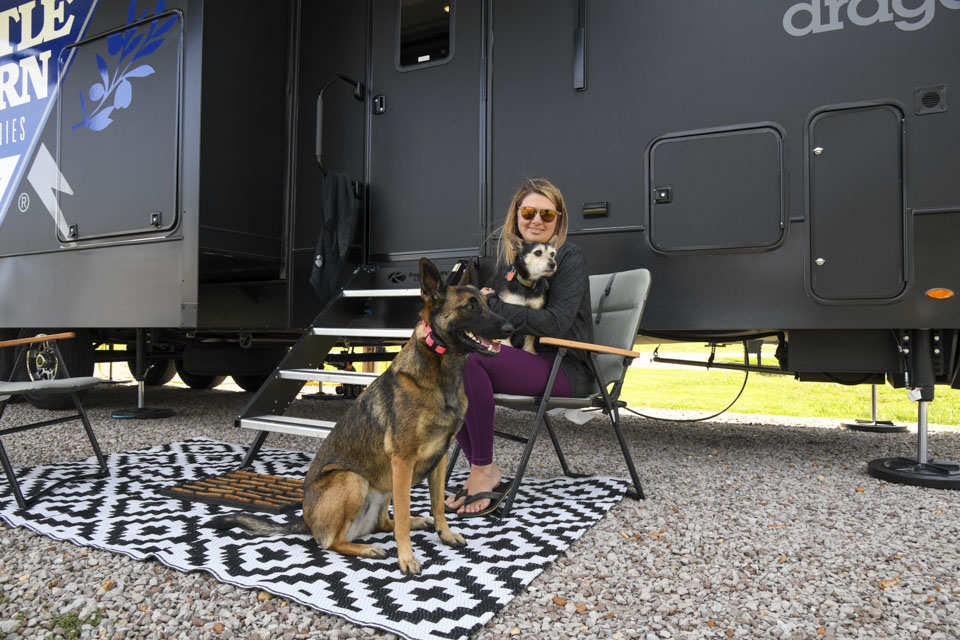
Cost of Living: Take into account the cost of living in your chosen location. Consider factors such as housing expenses, taxes, and healthcare costs. It's important to find a place that aligns with your budget and allows you to enjoy the benefits of your RV retirement without financial strain.
Community: Seek out a community that embraces the RV lifestyle. Look for RV-friendly neighborhoods or retirement communities that offer social activities, events, and support for RVers. Connecting with like-minded individuals will enrich your retirement experience and help you navigate any challenges that may arise.
Frequently Asked Questions
How Much Does It Cost to Maintain an RV During Retirement?
Maintaining an RV during retirement can vary in cost depending on factors such as insurance, fuel, campground fees, and maintenance. It is important to create a budget and consider these expenses when planning for an RV retirement.
Are There Any Specific Health Insurance Plans for Rvers?
There are specific health insurance plans available for RVers that offer coverage options and access to healthcare resources while on the road. Consider insurance costs and travel medical insurance options when considering full-time RV living.
What Are Some Tips for Meeting New People and Making Friends While Rving?
Meeting new people and making friends while RVing can be a rewarding experience. Engaging in campground activities, attending social events, joining RV clubs, and utilizing online platforms are all effective ways to connect with fellow travelers and build lasting friendships on the road.
How Can Retirees Stay Physically Fit and Active While Living in an Rv?
Retirement fitness is crucial for RVers, as it allows them to maintain an active and healthy lifestyle while on the road. Implementing RV exercise routines, such as hiking, biking, and yoga, can help retirees stay physically fit and active.
Are There Any Specific Considerations or Guidelines for Traveling With Grandchildren in an Rv?
When traveling with grandchildren in an RV, it is important to consider RV safety precautions. Ensure that the RV is equipped with appropriate child safety features and follow guidelines for child passenger safety.
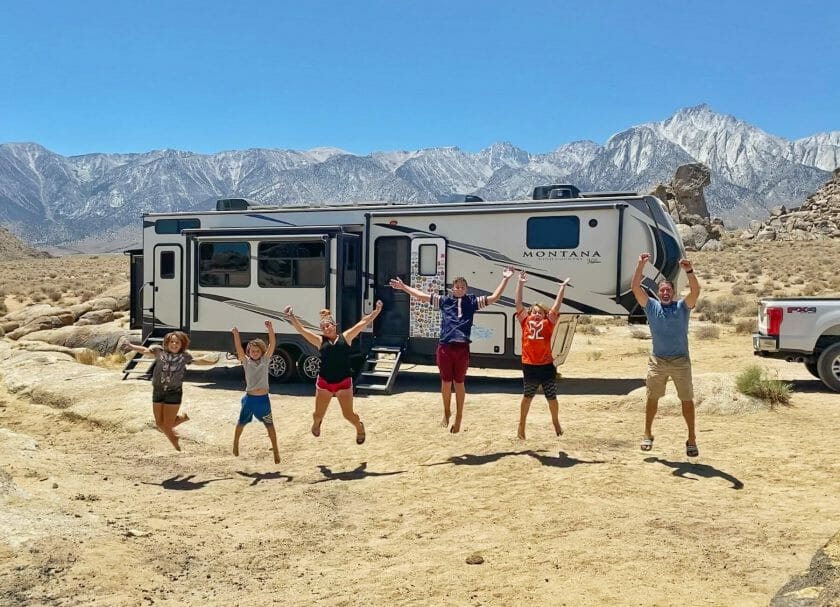
 Liveaboard LifestyleTravel DestinationsExPat Places to LiveRV LifeDigital Nomad TravelPrivacy PolicyTerms And Conditions
Liveaboard LifestyleTravel DestinationsExPat Places to LiveRV LifeDigital Nomad TravelPrivacy PolicyTerms And Conditions
